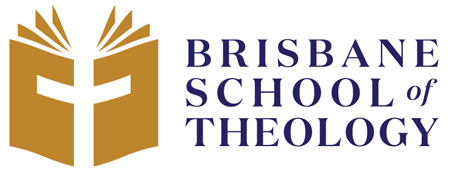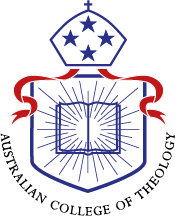Master of Divinity
GRADUATE
- 24 Units
- 3 yrs FT | up to 9 yrs PT
- 288 Credit Points
- FEE HELP
- OVERSEAS
Course Description
If you already have an undergraduate qualification, but you want to get serious about in-depth biblical study and ministry work, then the Master of Divinity is the program for you.
It begins with an overview of the entire biblical text, giving you a great framework as you move into more detailed analysis of key sections such as the Gospels, Paul’s letters, or the Psalms. You’ll have a chance to learn and study the Bible in the languages it was originally written in; you’ll gain an understanding of the long history and purpose of the church across the world; and you’ll be addressing major theological doctrines of grace, eschatology and even God Himself. You can then choose to specialise in the areas that most fit your intended career path, focusing on pastoral ministry and preaching, cross-cultural mission, or more comprehensive biblical studies.
Where can this course take you?
- Church pastoral roles
- Local and international mission work
- Church planting
- Chaplaincy/pastoral care roles
Most churches are quite happy that the Master of Divinity fulfils all the academic requirements for ordination, although a small amount of denomination-specific training might still be expected from some. Ministry organisations also recognise this program as excellent preparation for mission work, both practically and spiritually. And if you’re interested in pursuing advanced theological study, this course will open up the path to our Master of Theology or Doctor of Theology programs.
- Introduces graduate students to the sources and content of the Christian story and message at an advanced level, and provides training which combines articulation of this story and message with their application and practice in the contemporary world. The course will include the essential research principles and methods used in Divinity as preparation for higher degrees in Theology and Ministry.
- The course will be based on the disciplines by which knowledge of God is developed and articulated in the fields of:
- Bible and Languages (LA, OT, NT, BB)
- Christian Thought & History (TH, CH, PE)
- Through elective units students can:
- Develop advanced understanding in the Bible and Christian Thought & History
- Develop particular ministry skills in the three areas of the field of Ministry & Practice
Academic Qualifications: Completed three year non-theological bachelor degree or equivalent
Language Qualifications for NESB: IELTS 7.0 overall with a minimum of 7.0 in reading and writing, and 6.5 in listening and speaking OR 10 years in Australia with English being the language primarily spoken both at home and work.
Australian College of Theology Coursework Course Enrolment Policy
24 units | 288 credit points | 3 yrs FT, up to 9 yrs PT | On-campus & off-campus live stream
Master of Divinity course structure:
2 units from Old Testament Introduction
2 units from New Testament Introduction
2 units from History
3 units from Theology
1 Language (consists of 2 units)
2 units from Exegesis (1 Old Testament, 1 New Testament)
2 units from Exegesis (in Biblical language)
1 unit from Christian Thought
2 units from either Exegesis, Biblical Languages or Christian Thought
1 unit of Spiritual Formation for Professional Ministries
1 unit of Field Education
4 elective units
Below are the units you can choose from each category.
Biblical Introduction
Old Testament introduction
Old Testament Foundations – OT001-812
Old Testament Prophets and Writings – OT002-812
New Testament introduction
Jesus and the Gospels – NT001-812
Early New Testament Church – NT002-812
Christian Thought
History
Christianity in History to 1550 – CH001-812
Christianity in History from 1550 to Modern Times – CH002-812
Theology
The Knowledge of God – TH001-812
Creation and the Fall, the Person and Work of Christ– TH102-812
The Doctrines of Grace and Eschatology – TH003-812
The Church and its Ministry – TH104-812
Philosophy & Ethics
Christian Ethics – PE001-812
Christian Apologetics – PE206-812
Exegesis
Old Testament exegesis (in English or Hebrew)
Pentateuch – OT008-812/OT009-812
Former Prophets: 1 & 2 Samuel – OT010-812/OT011-812
Isaiah (40-55) – OT014-812/OT015-812
The Psalms OT020-812/OT021-812
New Testament exegesis (in English or Greek)
The Synoptic Gospels: Luke – NT008-812/NT009-812
The Fourth Gospel – NT016-812/NT017-812
The Pastoral Epistles – NT014-812/NT015-812
Pauline Theology and Romans – NT018-812/NT019-812
Paul and Corinthian Christianity – NT010-812/NT011-812
Ministry & Practice
Evangelism and mission
Mission Perspectives – EM001-812
Principles of Evangelism – EM024-812
Ministry in a Culturally Diverse Context – EM018-812
Contextual Asian Ministry – EM031-812
Cross-Cultural Field Education – EM040-812
Pastoral and church-focused ministry
Preaching I – PC047-812
Spiritual Formation for Professional Ministry – PC008-812
Pastoral Skills and Methods– PC003-812
Theological Perspectives on Mental Health – PC137-812
Mental Health Issues in Christian Counselling – IN004-812
Congregational Field Education – PC092-812
Practical Ministry Field Education – PC094-812
Child Abuse in Christian Communities: Prevention and Response – PC134-812
Languages
Biblical Hebrew (A) – LA003-812
Biblical Hebrew (B) – LA004-812
New Testament Greek (A) – LA005-812
New Testament Greek (B) – LA006-812
Project
12, 24 or 36 credit point projects available all at Level 9.
Note: Biblical Introduction, Church History and Greek A & B are offered every year, while the other units run on a two-year cycle. Please refer to the college timetable to find out what is being offered each year.
A full-time study load is 4 units per semester. You can be full-time and study 3 units per semester; it will just take you longer to finish the course. A part-time study load is 1 or 2 units per semester.
Course Rules
- Maximum concurrent enrolment load: 60cps
- Units in this course are completed at level 8 and above, including at least 96cps at level 9.
- There is a pre-requisite for Level 9 units: 48cps Level 8
Discipline Knowledge and Understanding
1. Demonstrate up-to-date extended knowledge and understanding of ‘Divinity’, including the spiritual and ethical implications
2. Discuss the essential research principles and methods used in Divinity
Inquiry and Analysis
3. Utilize, and reflect upon prior knowledge and experience, and use and reflect critically on, current knowledge, ideas and practice in Divinity in inquiry based learning
Problem Solving and Integration
4. Integrate and synthesize extended learning and knowledge from a wide range of sources and contexts in the investigation of problems and issues in Divinity scholarship and practice
Research
5. Plan and execute a research project or capstone experience by asking questions and identifying problems and using appropriate Divinity research principles and methods
Communication
6. Present extended Divinity knowledge, ideas and principles to, and engage with, specialist as well as non-specialist audiences using a variety of formats
Teamwork and Professional Practice
7. As leader and in groups, apply extended understanding of Divinity in formal ministry contexts and the wider community
Engagement With the World
8. Bring enhanced professional and vocational capacity to engagement with the challenges of contemporary Christianity, society and the wider world
Continuous Learning and Professional Development
9. Demonstrate readiness for research at a higher level in capacity for wide reading, analytical rigour and independent thinking
BST Timetable, Calendar and Fees
This course is FEE-HELP and Centrelink approved.
What is FEE-HELP?
FEE-HELP is a loan that helps eligible fee paying students pay their tuition fees.
For eligibility and more information on FEE-HELP go to:
https://www.studyassist.gov.au/help-loans/fee-help
This course is registered on CRICOS (054688E) and is available to overseas students. Further information for overseas students can be found on our overseas student page.
Overseas students can apply here.
If you begin your course and for some reason you are unable to continue your MDiv, provided that you have gained eight credit points (equivalent to studying four units), you will qualify for the GradCertDiv. If you have completed one year of full-time study (i.e., eight units) then you can receive the Graduate Diploma of Divinity.
If you complete a fourth year (full-time equivalent load) in the MMin, you will be awarded a Master of Ministry and a Graduate Diploma of Divinity. As long as you’ve gained an additional 96 credit points you can receive the qualification.
James Siong-Ung Kong
Assistant Pastor at Camberwell Methodist Church (Australia)
“Doing an MDiv at BST taught me so much about godly and servant leadership. The community living helped me learn to support and encourage others, to be patient and considerate and humble. The small group I was in gave me a chance to practice good discipline in studying God’s word and also how to share and pray with others. And the great and knowledgeable teaching staff made the lectures so helpful, and showed me how to put into practice what I was learning. The whole college experience shaped my life as a disciple of Christ and prepared me for this role now growing other disciples. I thank God.”




